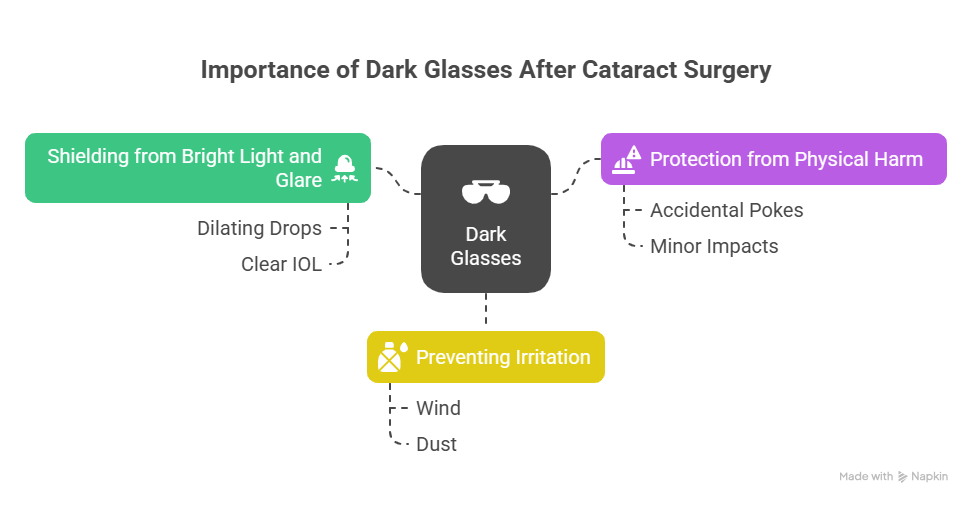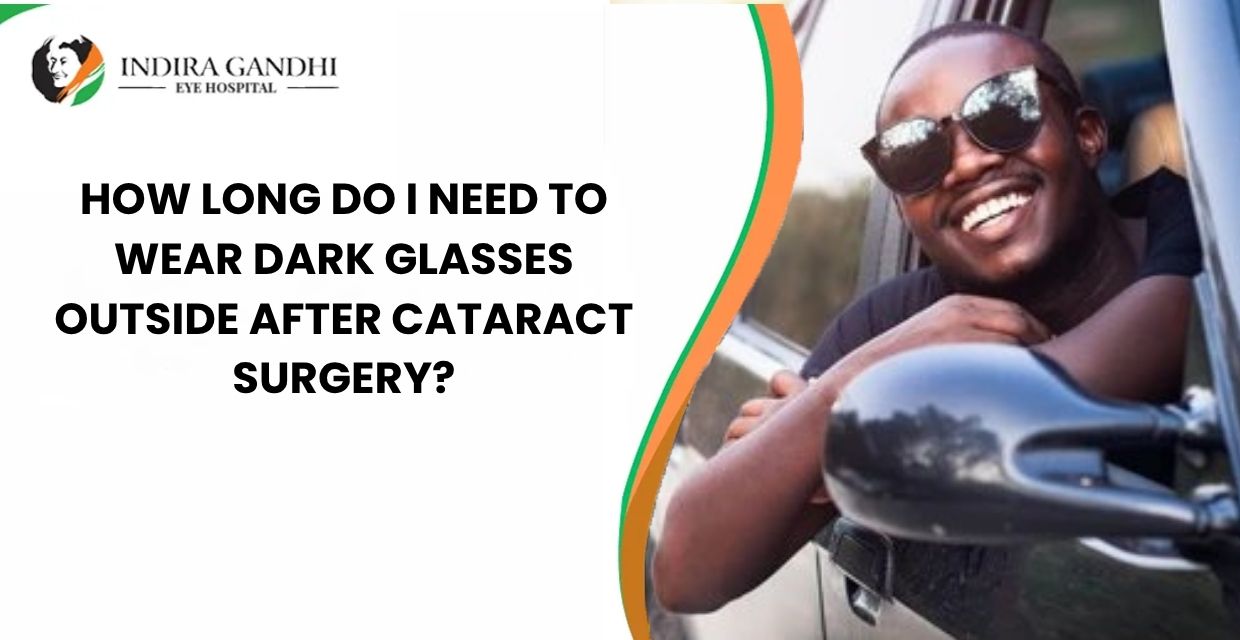|
Getting your Trinity Audio player ready...
|
If you’re on the journey towards regaining sharp vision through cataract surgery, congratulations! It’s a truly transformative procedure that has brought clarity back to millions of lives. As you anticipate this exciting change, one common question often pops up: “How long do I need to wear dark glasses outside after cataract surgery?”
It’s a perfectly valid question, and one we hear often at Indira Gandhi Eye Hospitals. You’re keen to understand the recovery process, and getting back to your normal routine is naturally on your mind. The simple answer is, it varies for each individual, but there are clear guidelines and reasons behind this recommendation. Let’s delve into the “why” and “how long” of wearing dark glasses after your cataract surgery, ensuring you have all the information to navigate your recovery smoothly and safely.
The Immediate Aftermath: Why Dark Glasses Are Your Best Friend

Immediately after your cataract surgery, you’ll likely be given a pair of protective dark glasses or a shield to wear. This isn’t just a fashion statement; it’s a critical part of your initial recovery. In the first few hours and days, these dark glasses serve multiple vital purposes:
- Shielding from Bright Light and Glare: Your eye will be significantly more sensitive to light immediately after surgery. This is partly due to the dilating drops used during the procedure, which make your pupil larger than usual, allowing more light to enter. Additionally, your brand-new, clear intraocular lens (IOL) is letting in light that was previously blocked by your cloudy cataract. This sudden influx of light can feel overwhelming and uncomfortable, even painful, initially. Dark glasses provide immediate relief by filtering out excessive brightness.
- Protection from Physical Harm: While cataract surgery is incredibly safe, your eye is still in a delicate healing phase. The dark glasses act as a physical barrier, protecting your eye from accidental pokes, rubs, dust, dirt, wind, or any minor impacts that could occur. This is especially important during those moments when you might forget and instinctively touch your eye.
- Preventing Irritation: Wind, dust, and airborne particles can irritate a healing eye. The wraparound nature of many post-operative dark glasses helps create a protective micro-environment around your eye, reducing exposure to these irritants, which could otherwise lead to discomfort or even a slight risk of infection.
So, in those crucial first 24-48 hours, how long do I need to wear dark glasses outside after cataract surgery? The answer is almost constantly, or at least whenever you are awake and not in a very dimly lit room. Your surgeon will provide specific instructions, but typically, this means wearing them indoors and outdoors during the day.
How Long Should You Wear Dark Glasses After Cataract Surgery?
Wearing dark glasses protects your eyes from sunlight and dust during recovery. Find out how long you should continue wearing them for optimal healing.
Consult a Cataract Specialist

